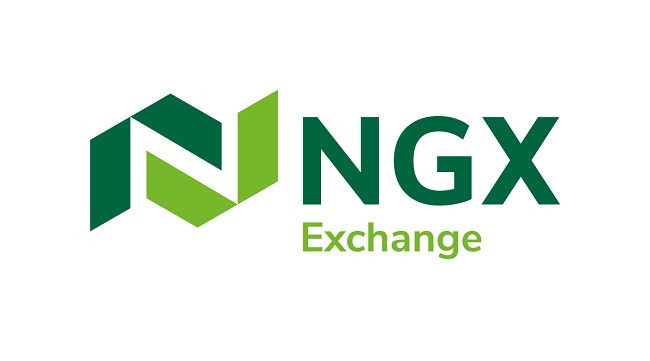
As the fear of global stock crash heightened, the Nigerian stock market, so far seems sturdy to withhold the effect hinging on the increased participation of domestic participation in the local bourse.
At the end of trading activities at the Nigerian Exchange (NGX) on Monday, equities trading dipped by 0.2 percent underpinned by losses in MTN Nigeria Communications stocks.

The All-Share Index declined by 0.2 percent to close at 97,582.41 basis points, with the Month-to-Date and Year-to-Date returns printing -0.2 percent and +30.5 percent, respectively.
Notably, the total volume of trades increased by 53.6 percent to 324.02 million units, valued at N6.22 billion, and exchanged in 9,738 deals.
As measured by market breadth, market sentiment was mixed, as an equal number of tickers 23 gained and lost.
Despite the slight dip in the local stock market, analysts believed it is unrelated the the global stock crash as the bears in telecommunications company, MTNN, look was unconnected to foreign outflow but was exacerbated by challenges with service delivery of over the past week, as the company’s dropped calls increased drastically since August 1.
On Monday, Japanese stock markets plummeted, with Japan’s Nikkei 225 index suffering its largest single-day point drop in history, driven by fears of a strengthening yen and a possible recession in the United States.
On Wall Street, the tech-heavy Nasdaq Composite index fell 6.3 percent at the open, while the S&P 500 lost 4.1 percent, before paring their losses.
In a sell-off that was mirrored in markets throughout Asia, the Nikkei ended the day down a staggering 12.4 percent.
Equities trading in Japan was suspended to prevent panic selling after the decline triggered circuit breakers designed to contain severe market drops. The frenzy also activated circuit breakers in South Korea, where the main market finished nearly 9 percent lower.
Last Friday, stock markets in key commercial centers of the world were hit by a global sell-off as a weak US jobs growth report elicited fears of a likely economic recession in the world’s most influential financial center.
The fear of an impending economic recession in the US was heightened by official data which showed that only 114,000 jobs were created in July, far fewer than the 150,000 threshold. Unemployment rate rose to its highest level in nearly three years and there is palpable fear that the US’ Federal Reserve will cut interest rates to stimulate economic growth.
The bear market has spread to Europe and Japan, as investors search for a safe haven. The problem is further compounded by the drop in oil prices which settled to their lowest levels since January.
Market analysts believed the effect of the global crash on the local on the Nigerian equities market might be unsustained as a result of the low level of foreign participation in the NGX would serve as an buffer from some of the shocks that affect global markets.
As of June 2024, foreign participation in the NGX was about N82.2 billion representing about 23.18 percent During the month, foreign inflow was about N38.25 billion, with outflow at about N43.94 billion.
Speaking on the possible effect, stockbrokers believed that rather than the negative impact of a possible flight of foreign investment, the Nigerian stock market may be a haven for investors looking for a safer place to put their investments.
Oluropo Dada, President, Chartered Institute of Stockbrokers (CIS) noted that smart investors may take advantage of the current situation to buy where there is any significant price drop that is not caused by company fundamentals.
However, he noted that the deciding factor for the Nigerian capital market will be the domestic macroeconomic stability, especially how the ongoing protests are handled.
“If normalcy returns to the country soon and there is no escalated tension, foreign investors may actually see the country as a viable alternative to cover their losses in Europe and the US, he said.
While noting that the NGX’s All Share Index closed the previous week almost flat, shedding just 0.46 percent for the week, he said the local market is largely dominated by local investors and the volume of foreign portfolio investment still relatively low.
Speaking for the stockbrokers, he projected a reactionary price swing, but not a sustained crash.
“In fact, the Nigerian stock market could be a net beneficiary, as foreign investors take flight from US and Europe if they perceive stronger appreciation potential in the ongoing banking sector recapitalisation exercise,” he said.
READ ALSO: Protest: Police arrest 27 for defying curfew, looting in Plateau








